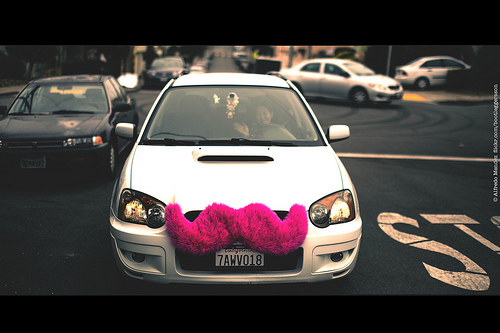
In cities around the world, ride-share apps like Uber and Lyft have become popular for alternative, cheaper riding services. However, the controversy between taxi services, ride-share companies, and their overall safety leaves many concerned.
As car accident attorneys, we think it is important for you to understand the differences between the two, and what would happen if you were in a car accident with one of the car services. With everything laid out, we hope to give you information on the controversy so you can make the best choices for yourself.
What is a Ride-Share App?
In case you are unfamiliar with ride-share apps, they are new phone applications that connect drivers and riders (potentially you). A rider will pin their location on a map and ask for a ride. Within seconds, a nearby driver will accept the ride and drive you to your destination.
The driver will take you in their personal car, and you pay via the app. When a rider reaches their destination, the app will tell you the total for your ride, give you an opportunity to tip the driver, and charge your credit card. Afterwards, you have the opportunity to rate your experience.
When you choose to use the app, there will be different cars to choose from. Riders may request cars, SUVs, black high-end cars, or whatever is the closest. The Black and Luxury services are more expensive.
Many riders continue to use the ride-share apps like Uber and Lyft because of the great deals that come with it. In some cities, the first ten rides under twenty-five dollars, or an unlimited amount within a certain period, will be free. In NYC, Lyft offers the first fifty rides under twenty-five dollars for free.
Both Uber and Lyft recently announced car pooling services—Lyft Line and UberPool—where a rider can share a car with another rider that is going in the same direction. The main goals for the carpooling service are to decrease the amount of cars on the road (lowering traffic) and creating a cheaper experience for the riders.
These services are changing the concept of the car service industry, and it isn’t necessarily a bad thing. Ride shares are more convenient (imagine never having to hail a taxi in the rain again) and offer better customer service. If you rate your driver low, then you will not be matched up with him or her again.
Why are taxi companies mad?
Taxi companies are direct competitors of ride-share apps but have completely different regulations. Taxis are still using traditional ways to find customers: potential riders will call the company service and taxis will be dispatched to pick them up; or taxis will remain around high-traffic areas and wait for a street hail.
Taxis are losing the younger customers who are using ride share apps. In San Francisco, Los Angeles, and Seattle, where Uber and Lyft are extremely popular, taxis are using new taxi apps like Flywheel and Taxi Magic (now called Curb).
However, there is a downfall for Taxi drivers using Curb. If they accept a ride and then decide to take a street hail, the taxi driver will be penalized by not being able to use Curb for the next five hours.
So what’s the big deal? Am I safe using both services?
Aside from taking away taxi company’s customers, ride-share apps are not required to follow the strict regulations that taxi services do. Ride-share companies do not have to use commercial car insurance, and do not have to get taxi medallions (licenses). Commercial insurance is more expensive because drivers spend most of the time in high-traffic areas, and are in their car for longer periods of time.
Drivers of Uber and Lyft are considered independent contractors, so the ride-share companies rely on the driver’s personal car insurance. In addition, the background checks and car checks are done by the companies, not the government.
Check out Uber and Lyft’s safety information on their websites.
There are organizations trying to change the regulations and insurance coverage on ride-share companies. The vehicle insurance lobby has proposed AB 2293 that would require ride-share companies like Uber and Lyft to provide 750,000 dollars commercial insurance whenever they are working.
Another regulation proposed by the tax industry, AB 612, would require Department of Justice background checks and drug tests for drivers.
How does St. Louis fit into the controversy?
St. Louis currently does not have any ride-share companies because city regulations will not allow this type of business model.
Louis P. Hamilton, chairman of St. Louis’ Metropolitan Taxicab Commission said Uber is welcome in St. Louis as long as the regulations are being followed. Once the regulations become stricter, I am sure there will be an influx of Uber and other companies expanding into many cities around the nation, including St. Louis.
What happens if I get in a car accident?
If you are involved in a car accident with a ride-share or taxi service, contact an experienced lawyer. At Finney Law Office, we specialize in both car accidents and premise liability, so we have a firm understanding on various angles of this troubling situation.
We hope this information will make you feel more informed on the debate between taxis and ride-share companies. If you have any more questions about ride-share companies, please feel free to contact us.
Photo Credit: Tribute/ Homenaje via Compfight cc

